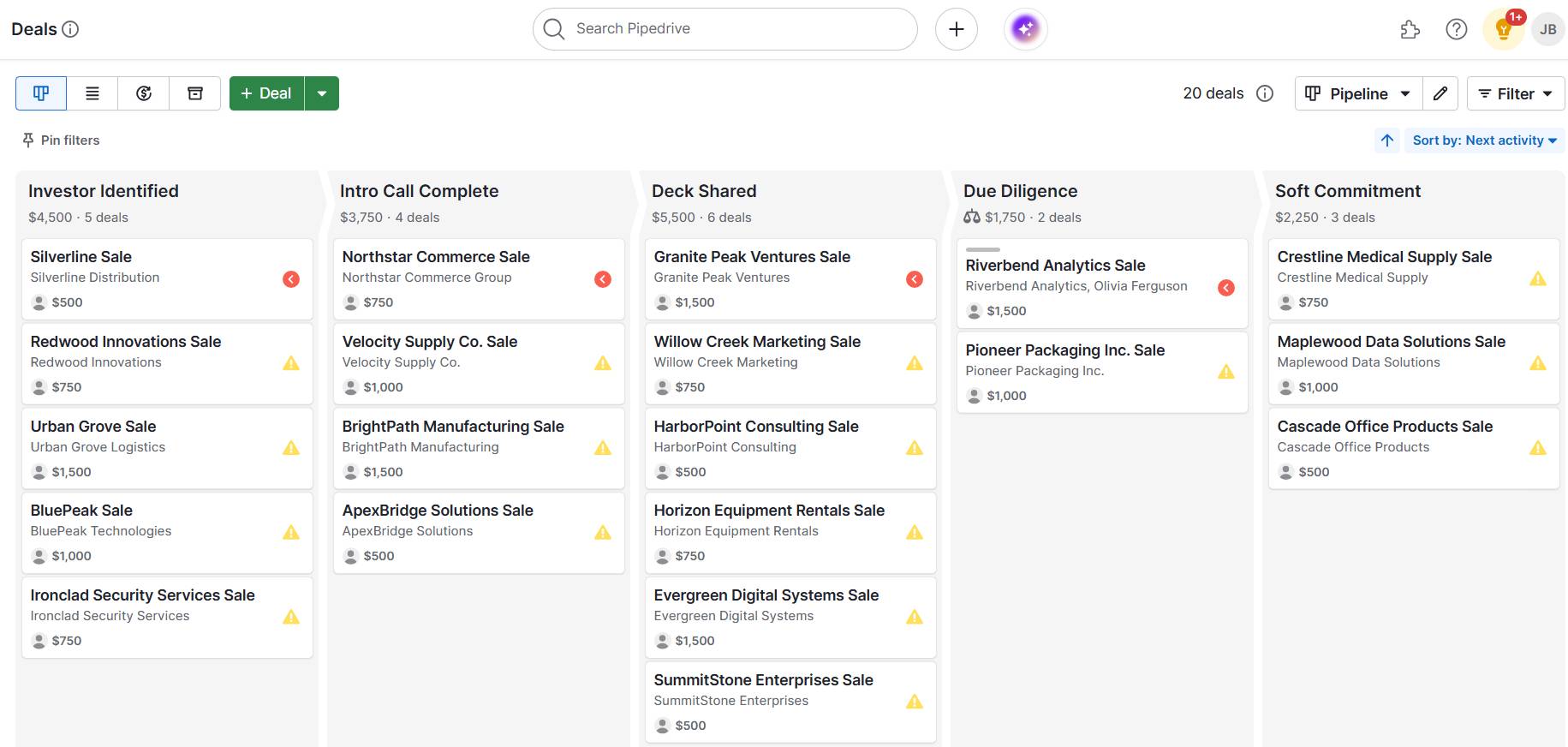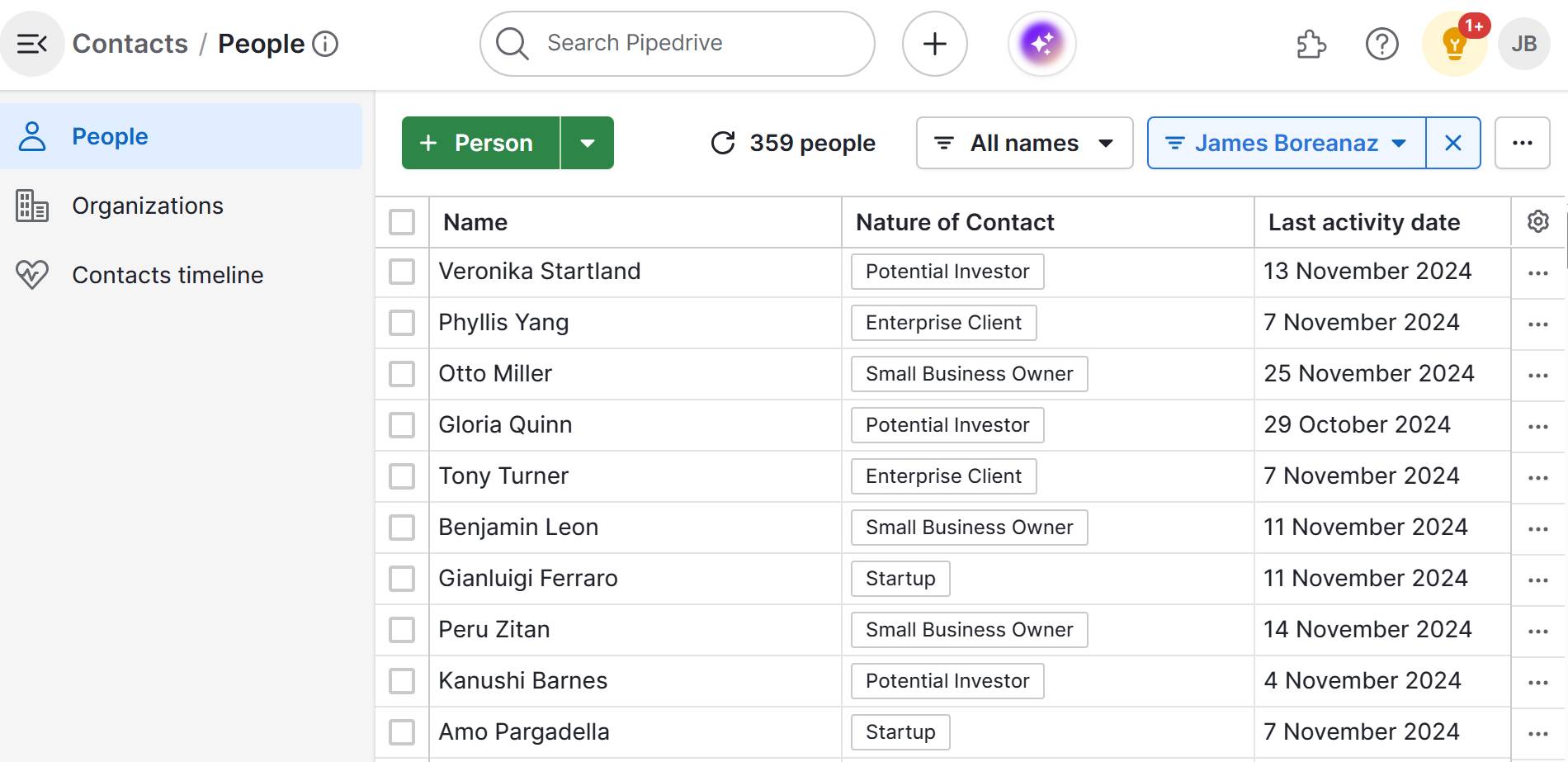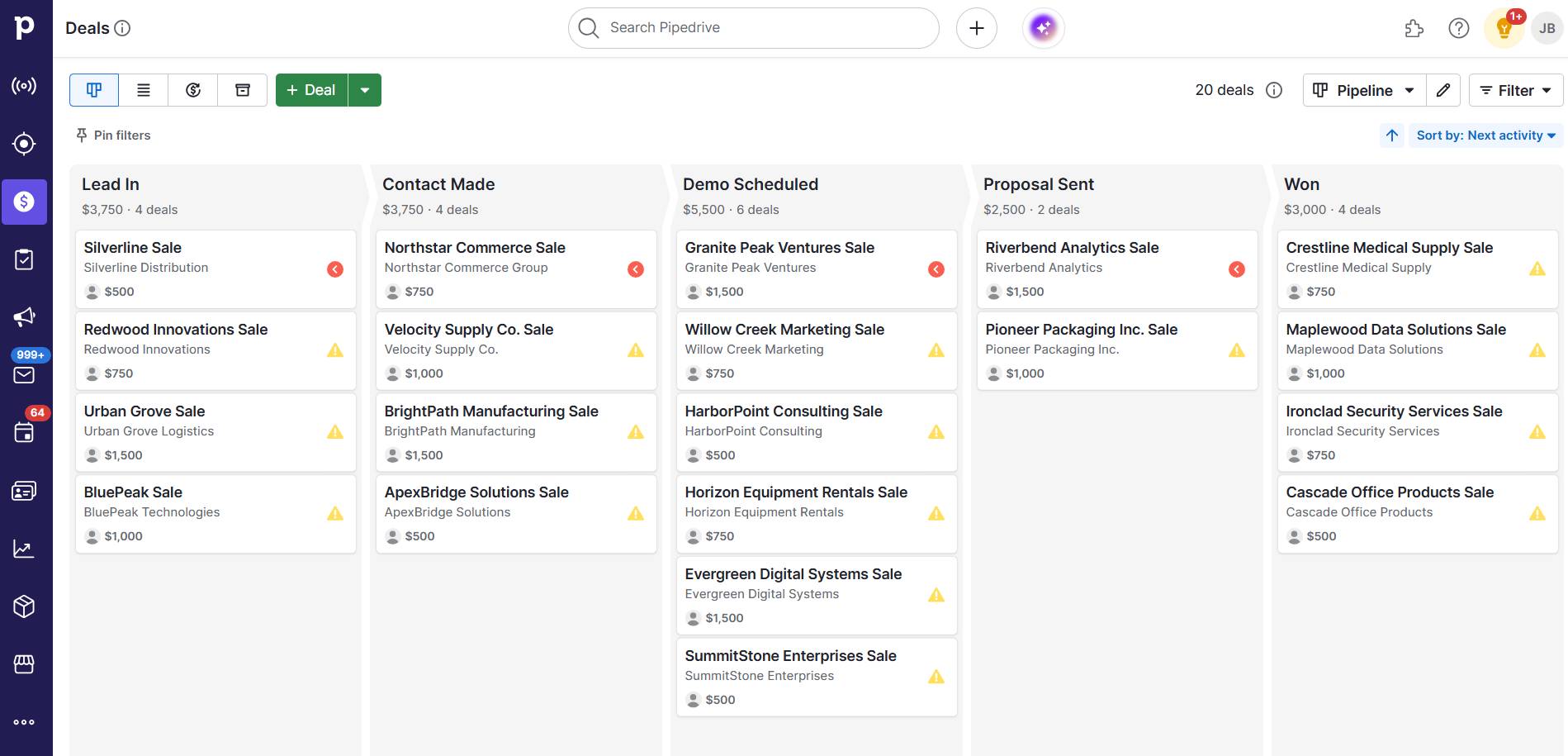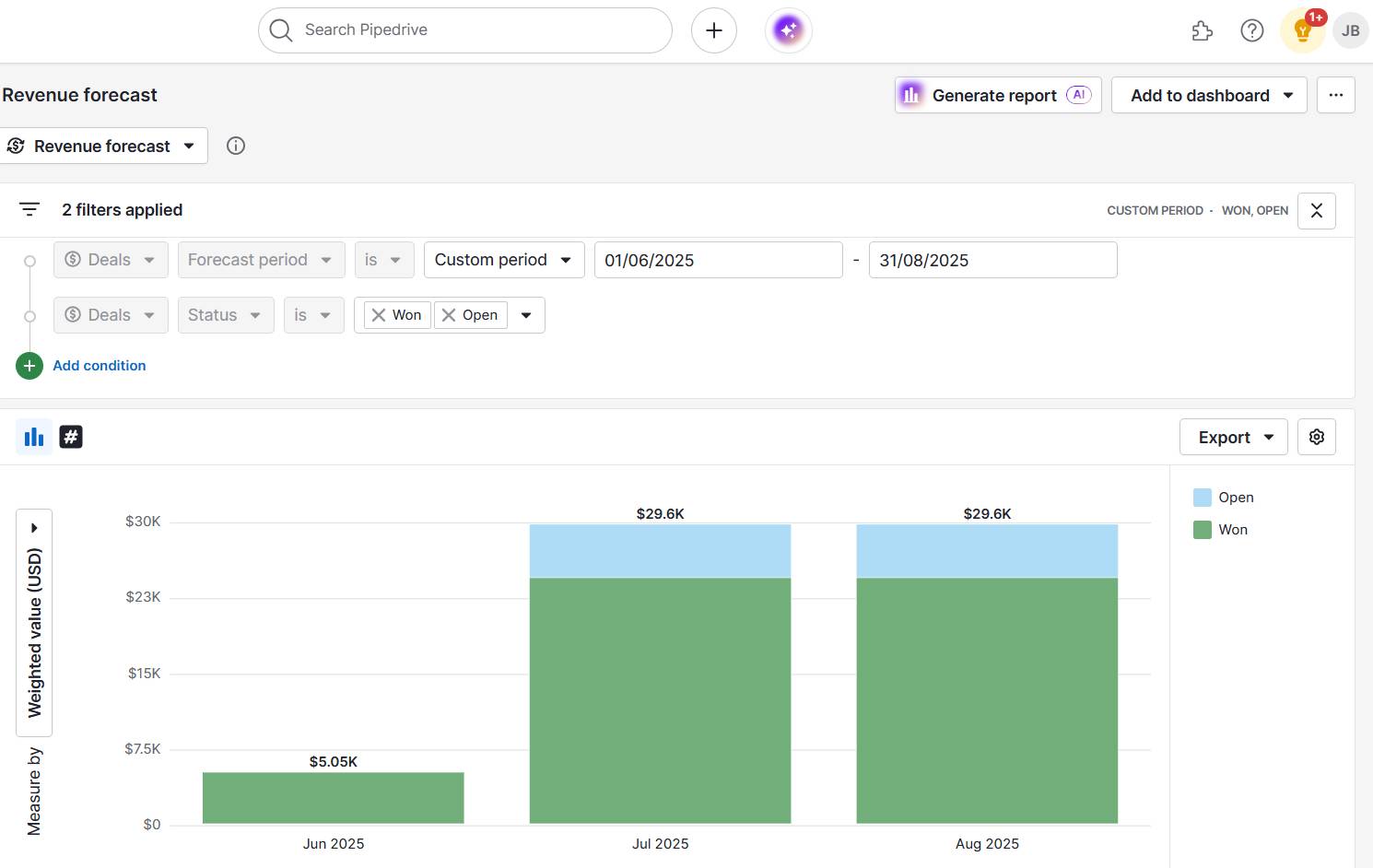Startup incubators offer early-stage founders the resources, mentorship and structure they need to launch their businesses.
Have you wondered what a startup incubator involves and whether joining one could be right for your small business?
In this article, you’ll learn who startup incubators are for, how to choose the right program for your business and what it takes to prepare a standout application.
What is a startup incubator?
A startup incubator is a program that helps founders of early-stage – or “pre-seed” – startups get their businesses off the ground.
Incubators provide founders with helpful resources and hands-on support, including:
Mentorship and training
Access to professional networks
Support with business development
Access to a workspace and other shared resources
Many programs focus on specific industries or regions and operate with flexible timelines to meet the needs of each startup.
Examples of popular startup incubators around the world include:
Startup incubator | Location and industry focus |
Canada; climate tech and health tech | |
UK and Europe; tech (various) | |
Global; tech (various) |
Startup incubators focus on businesses at the very beginning of their journey.
The programs offer founders a structured environment to test assumptions, build early traction and lay the groundwork for sustainable growth.
What’s the difference between a startup incubator and a business accelerator?
Startup incubators help early-stage founders develop their ideas and launch their businesses. The programs offer long-term, flexible support in areas such as:
Product development
Customer discovery
Business model validation
By contrast, business accelerators help founders of more established startups scale. For example, Y Combinator is a well-known accelerator in the US focused on tech startups.
Accelerators are typically intensive, time-limited programs that include mentorship and investor access. In some cases, they also include seed funding.
Startup incubator | Business accelerator |
|
|
Startup incubators and accelerator programs both aim to drive business growth. Each one serves a different stage of the startup journey.
How does a startup business incubator work?
The best startup incubators provide a supportive environment for early-stage founders to develop their ideas into viable businesses. The programs often include:
Mentorship. Guidance from industry experts on how to be an entrepreneur and make good business decisions.
Shared resources. Access to office space, technology and administrative support to reduce business costs and support progress.
Business development help. Training on marketing, operations and building a customer base helps build a strong foundation to grow your business.
Funding connections and pitch practice. Incubators often introduce startups to investors. The programs prepare founders to pitch their ideas with confidence.
These features create a structured setting for accelerated learning and entrepreneurial growth.
Who should consider joining a startup incubator?
Startup incubators are for founders looking to move beyond the initial idea stage of their venture.
The programs are ideal for entrepreneurs who want structured guidance and access to networking opportunities. Incubators are also a good fit for founders who want to grow their startups in a collaborative environment.
The programs are a particularly good match for:
Small business owners with a strong idea to validate or take to the next level
Solo founders or small teams of co-founders seeking structure or mentorship
Entrepreneurs who have started a business with scalable potential
These programs offer a valuable boost for those ready to build a solid foundation and prepare for the next steps in their startup journey.
Many of today’s most successful companies are “graduates” of startup incubators. Notable examples include eSIM store Airalo and B2B buy now, pay later platform Two (Antler) and fintech company Wise (Seedcamp).
5 key benefits of joining a startup incubator
Here are the main benefits that startup incubators offer entrepreneurs and founders:
1. Structured mentorship
One of the biggest advantages of startup incubation is receiving expert advice and guidance. This structured mentorship helps founders make informed decisions and refine their business strategies.
For example, some programs pair each startup with a lead mentor and a rotating group of experts. Together, these advisors provide guidance on everything from product validation to growth strategy. This 1:1 support sometimes continues after the program ends.
2. Access to funding networks
The best startup incubators connect founders with investment and funding opportunities.
The programs sometimes offer pitch practice to help entrepreneurs improve how they present their ideas to increase their chances of securing early-stage capital.
Some programs host “demo” days, which hundreds of investors attend. Guests often include:
Venture capital firms (or “VCs”) – Specialist investment firms that provide funding to promising startups in exchange for equity
“Angel investors” – High-net-worth individuals who invest their own money in early-stage startups in exchange for a stake in the business
During demo days, startups deliver well-prepared, concise sales pitches to these investors in a bid to secure funding.
3. Built-in networking ecosystem
Startup incubation creates a community of peers, mentors and partners. The programs foster collaboration and knowledge sharing among those involved.
Being part of this ecosystem helps startup founders build valuable relationships. Entrepreneurs also gain insights from others walking a similar path in business.
For example, a fintech founder in an incubator might connect with a compliance tooling startup. In the future, this relationship may lead to an integration between the two products.
These peer-to-peer connections often lead to productive collaborations. Sometimes these relationships even result in joint fundraising efforts.
4. Business plan and go-to-market support
Incubators help founders refine business plans and develop effective go-to-market (GTM) strategies. This type of support can be particularly valuable when launching a product or starting customer acquisition efforts.
In tech startup incubators, founders receive focused guidance on product management. This support includes help with:
Establishing an ideal customer profile
Building the early stages of a product roadmap
Testing prototypes and improving the user experience
Iterating toward product-market fit and commercialization (i.e., a state where early concepts have become revenue-generating products that meet a genuine market need)
For example, some incubators host workshops to help founders fine-tune their go-to-market plans. Business owners receive live feedback from marketers, product managers and growth advisors.
These sessions can surface new opportunities to explore a startup’s brand positioning and customer segmentation approaches.
5. Clarity and accountability
Joining an incubator brings structure, focus and support to the traditional chaos of early-stage startup life.
The programs often include regular check-ins, milestones and deadlines to provide accountability and help founders maintain momentum.
For example, many startup incubators include monthly progress updates. Founders check in with their mentor and receive feedback on their performance.
Do incubator programs for startups involve any risks?
While startup incubators provide valuable resources and support, founders should be aware of a few risks.
If you’re thinking about joining a startup incubator, here are some potential downsides to consider:
Rigid programming | A structured schedule and curriculum of activities may not align with your startup’s pace or business goals. |
Time and energy commitment | Participating in incubator activities can take time away from sales and business development. |
The price of participation | Some incubators require founders to give up a portion of ownership in exchange for support, while others charge a participation fee. |
If any of these options are particularly concerning, seek clarification from the program organizers when evaluating your options.
For example, if you’re concerned about the price of participation, clarify the exact terms and consider whether the investment is worth making. If the programming feels too rigid, ask whether there’s room to tailor the experience to your startup’s goals.
With this information, you can judge whether joining an incubator is the right path for your startup and which program best meets your needs as a founder.
Factors to consider when choosing an incubator for your startup
Selecting the best startup incubator for your business can significantly impact its growth trajectory. To find the right fit, consider the following key factors.
Sector focus
Many incubators specialize in specific industries such as technology, healthcare, life sciences or social entrepreneurship.
For example, a tech startup incubator focuses on early-stage technology. It provides sector-specific resources, investor connections and tailored mentorship on relevant topics like SaaS sales.
Choosing an incubator aligned with your startup’s industry focus means you’ll receive support for the market’s unique challenges and opportunities. A non-profit startup, for instance, may benefit more from a sustainability-focused incubator than a generalist program.
Stage alignment
Incubators vary in the startup stages they serve. Some focus on idea-stage founders still validating their concepts, while others target startups with a minimum viable product (MVP).
To get the most effective support, make sure the focus of the incubator you choose matches your business’s startup stage.
Download your free business continuity plan template
Track record
As part of your research, look for startup incubators with a proven track record of success.
Review the testimonials and success stories from founders who have already completed the program (known as “alumni”) on the incubator’s website.
Keep a close eye out for the outcomes they have gone on to achieve, such as:
Funding raised
Business growth
Product launch success
These insights can help you gauge the program’s real-world impact and evaluate whether it could help your startup achieve its objectives.
Location and accessibility
Consider whether a local, in-person program or a remote or hybrid incubator would best suit your requirements.
In-person incubators offer direct access to workspace and face-to-face networking events. Remote programs, on the other hand, offer flexibility and can broaden your access to global expertise.
When evaluating the options, focus on the resources your startup needs and your preferred working style.
Program design
Startup incubators offer various packages with different support, resources and benefits.
For example, some programs provide office space, shared services and administrative support. Other startup incubators focus on mentorship, business development support and funding introductions.
Prioritize the benefits that align with your most pressing needs and your business growth plans.
Application criteria and timelines
Finally, review the application requirements for each startup incubator carefully. Some programs have strict criteria on industry, business model or founder experience, and many only accept applications once or twice a year.
Understanding the selection process early helps you focus your efforts on incubators that match your availability and offer the best chance of success.
We’ll explore this important topic in further detail later in the article.
5 steps to navigate the startup incubator application process
Applying to a startup incubator takes time, focus and effort. Follow these five steps to avoid overwhelm and navigate the application process with confidence and clarity:
1. Understand the application timeline
Most incubators have a structured application cycle that runs once or twice a year.
The full application timeline usually spans several weeks. It starts with an online application form, followed by interviews and/or pitch sessions for shortlisted candidates.
It’s essential to plan ahead and allow enough time to prepare for each stage of the application process.
2. Prepare your application materials
To assess a startup’s eligibility, most incubators require funders to submit the following supporting information as part of the application process:
A compelling business plan | Incubators want to see that you understand your market and have a viable path to scaling. Your business plan should clearly explain your product or service, target market and competitor analysis results. |
Founder bios and co-founder information | Incubators look for capable, committed founders and management teams. Your bio(s) should highlight relevant skills, experience and strengths that show you’re equipped to execute your vision and adapt as you grow. |
Progress metrics | Incubators value evidence of momentum. Share any early traction to demonstrate that your business resonates with customers and is moving in the right direction. You might include data like pre-orders, pilot results or early sales metrics. |
Clarity on your business model | Incubators expect a clear explanation of how your business creates and captures value. Outline your revenue streams, pricing and customer conversion strategy. |
Gathering this information will also help you in the later stages of the application process. You’ll need it to prepare for your pitches and interviews.
3. Craft a standout pitch and interview game plan
The next stage of the application process usually involves pitches and interviews, during which you present your business idea and its potential.
Focus on clarifying:
Your value proposition
The problem you’re solving
Your target market size
Your competitive advantage
Present relevant data (e.g., sales or marketing metrics) and use storytelling to make your pitch engaging and memorable.
For example, if your business idea came from a specific challenge you encountered in daily life, describe the scenario in detail and how your solution solves the problem.
Practice answering the questions that decision-makers will likely ask after your pitch or during your interview. Seek feedback from a colleague or trusted friend to improve your performance.
Free ebook: How to tell your brand story
4. Demonstrate the qualities incubators seek in founders
Beyond the business idea’s potential, incubators assess founders on their characteristics. They value qualities such as:
Adaptability
Resilience
A collaborative mindset
Startup incubators look for founders ready to engage with mentorship and peer learning.
For example, say you tweaked your idea following user testing or changed direction in light of market research. Being prepared to pivot in this way shows adaptability and a growth mindset.
Focus on ways to demonstrate these qualities as you craft your online application and prepare for your pitches and interviews.
5. Avoid making common application mistakes
There are several common mistakes that trip founders up when they apply to join startup incubators. Be sure to avoid:
Submitting a generic or unpolished business plan
Failing to explain your unique value proposition
Ignoring the challenges you face in bringing your idea to market
Neglecting to tailor your application to the incubator’s sector or stage focus
Following these five steps will put you in a strong position to navigate the application process confidently and improve your chances of joining the right program.
How Pipedrive can help you prepare for a startup incubator
When it comes to applying to a startup incubator, success will often come down to how well you can present your business and its sales performance to date.
Here’s how Pipedrive’s CRM for startups gives you the clarity you need to prepare an application that gets results.
Tracking leads and investor conversations
Incubators want to see traction and relationship-building in motion. Pipedrive’s deal management and contact management features let you track every investor conversation, partnership lead or early sales opportunity in one place.

You can also create a custom field to flag an investor’s status and record meeting outcomes or notes for follow-up conversations.

Organizing your sales pipeline
If your startup has begun selling a new product, Pipedrive’s sales pipeline also gives you a clear, customizable view to track each deal’s progress:

Pipedrive’s sales pipeline helps you demonstrate to program decision-makers that you have momentum in sales and a repeatable process. These are both key signals that a startup is ready to join an incubator program.
Running early customer outreach campaigns
Using Campaigns, Pipedrive’s email management software, you can send targeted email campaigns to prospects and early users.

From there, you can monitor performance and fine-tune your messaging.
This activity allows you to validate demand while showing incubators that you’re actively engaging with your market.
Forecasting sales with confidence
Presenting sales forecasts is a great way to indicate your business’s growth potential to incubators.
Gathering and sharing these figures as part of the application process also demonstrates that you think ahead and approach your business with a long-term view.
Pipedrive’s Insights deal revenue forecast report allows you to estimate your future revenue.

You can understand how much revenue you have in closed deals and how much to expect from deals yet to close.
Note: To learn more about how to fundraise with Pipedrive, read how the company’s leadership used the software to raise a $700K seed round.
Final thoughts
Startup incubators can offer a strong advantage to founders at the right stage of their journey. The programs provide expert guidance, funding opportunities and access to helpful shared resources.
Choosing the right program and putting effort into your application can set your business up for long-term growth.
If you plan to apply to a startup incubator, Pipedrive can help you prepare. Start your free 14-day trial of Pipedrive today.







